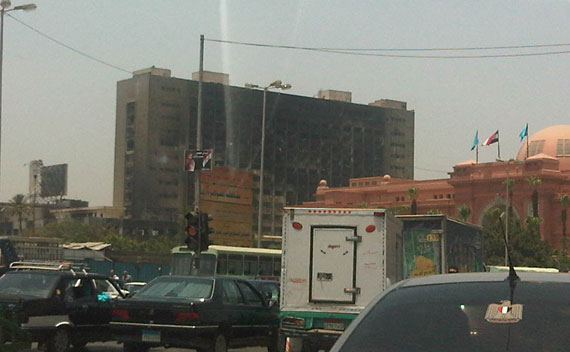Egypt: Which Comes First? The Constitution or Elections?
More on:

It’s good to be back in Cairo. My first trip to Egypt since late January. When I was here last on the fourth day of the uprising, Hosni Mubarak was still in power, the demonstrations in Tahrir were just starting to kick into high gear, and the Obama administration’s talking points still included “stability” and “reform.” No need to repeat here how much has changed in Egypt. One thing you can’t sense from Washington is the unprecedented burst of energy and creativity in Cairo. It’s as if between the July 1952 coup and the January 2011 uprising Egyptians were living in suspended animation and now they are making up for lost time. That is, of course, not accurate, Egypt had a more contested political environment and richer ideological discourse than many believed.
The current issue animating the debate in elite circles is: Which comes first? The constitution or elections? My colleague, Jonathan Tepperman, and I ran around Cairo all day and heard three basic arguments:
1. Elections must be postponed to give new political groups (shorthand for liberals and revolutionaries) to organize.
2. Elections must be postponed because it is preferable to establish the basic institutions of the new political order before elections. This would go a long way toward advancing the “rule of law” and reduce the likelihood that the constitutional drafting exercise will be politicized.
3. Elections must be held, as scheduled, in September.
Each of these arguments has merit, but also drawbacks that make it hard to determine the best course of action and the obvious reason why Egyptians are debating the matter. As with so much in Egypt these days, the stakes on this one are high.
As one close Egyptian friend related to me tonight, “In my heart, I am with those who want to write a new constitution first, but it isn’t practical and we have a lot to lose from postponing the elections.” He pointed out (and I agree) that postponing elections so that new parties can get organized sounds good, but how much time will they need? Three months? Six months? A year? What if they never get their collective acts together? All the while the military remains in power and a certain amount of economy-killing uncertainty remains.
As far as waiting until a new constitution is written, Egyptians could be waiting a long time. One of the truly exhilarating aspects of the post-Mubarak period is the flowering of Egyptian politics. I am not sure anyone would want to trade that, but it does present a problem in a hyper-competitive political arena—notably, getting parties to agree. Even if the armed forces named a constitutional committee, one can imagine that the political groups will want to look after their equities in the deliberations, making for anything but a quick process. Can anyone guess how long the post-apartheid South Africa constitution took to draft? Seven long years. Do Egyptians want to leave the military in power that long? Does the military want to stay in power that long?
As for forging ahead with September, the only way you support this option is if you are a member of the Muslim Brotherhood and you are confident of victory or you are not a member of the Muslim Brotherhood and you are confident they are not strong enough to pull off a big victory. These are just hunches, though. No one can know the relative strength of any political party until there is an actual election.
There are no easy answers to the dilemmas of the new Egypt. The struggle continues.
More tomorrow…
More on:
 Online Store
Online Store